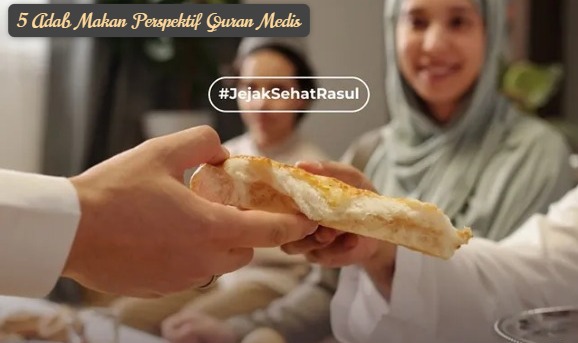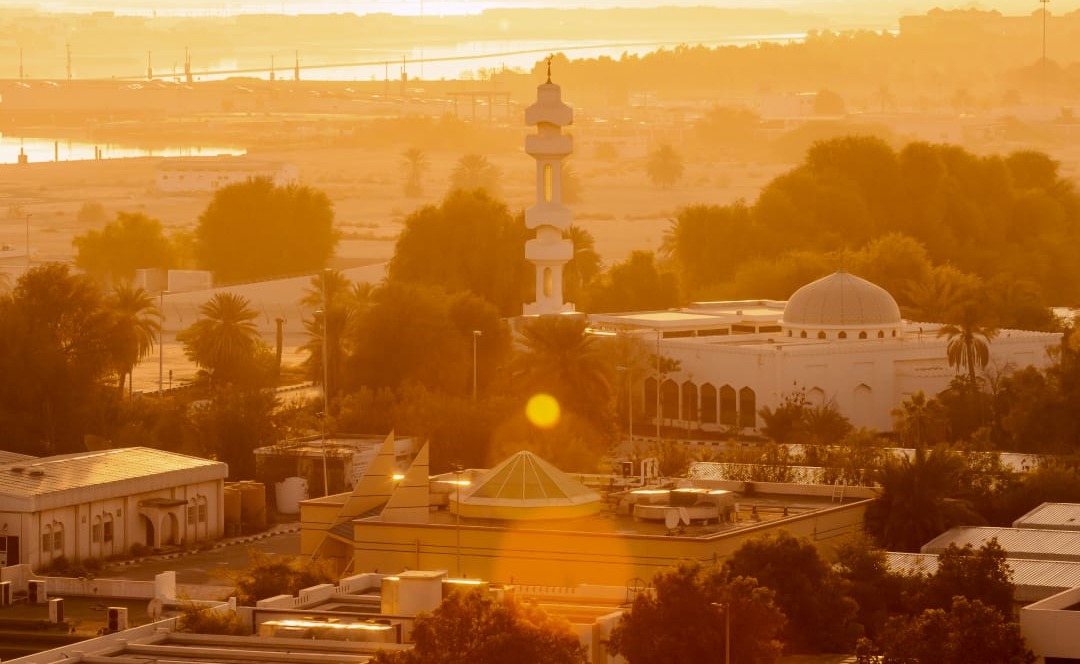Heri Mahbub
"Do not drink while standing..." – Narrated by Muslim. At first, I thought: "What does standing have to do with health?" But curiosity drove me to investigate. Is it permissible to eat at a standing party? This relates to table manners. From there, I found the answer in the Medical Quran—an approach to healthy living based on the Quran and the Sunnah of the Prophet Muhammad.

Quran Cordoba - Harmonizing faith and knowledge about daily eating habits. Despite the advancements in modern medicine, many people still experience chronic digestive problems that persist despite various medications. However, who would have thought that this health solution was taught over 1,400 years ago by the Prophet Muhammad (peace be upon him)?
Eating and drinking etiquette in Islam is not just a religious rule, but also a scientifically proven key to a healthy lifestyle. The concept of Quranic Medicine —a health approach based on the Quran and the Prophet's traditions—is increasingly relevant in today's fast-paced modern lifestyle.
Is the practice of eating while standing relevant to health? The medical Quran answers this question, referring to the guidance of the Quran and the Hadith, which implicitly and explicitly discuss physical health.
In Surah Al-Baqarah verse 2, Allah states that the Qur'an is a guide for humans that there is no doubt in it, including in the aspect of protecting the body as a trust from Him.
The Prophet Muhammad's (PBUH) simple, conscious, and ethical diet shows that spirituality and health are closely linked in Islam.
"Do not eat or drink while standing," said the Prophet Muhammad (peace be upon him) (Narrated by Muslim). In the context of medical Quranic studies , this advice aligns with the findings of modern doctors.
When humans stand, the sympathetic nervous system is activated, the "fight or flight" system that triggers muscle tension and slows digestion. Conversely, when sitting relaxed, the parasympathetic system—known as "rest and digest"—is activated, making food more easily absorbed by the body.
Research published in Current Issues in Molecular Biology (2025) confirms that stimulation of the vagus nerve, which regulates the digestive system, is more optimal when a person is sitting in a calm position.
The Prophet Muhammad (peace be upon him) said,
"I won't eat while leaning back." (HR. Bukhari).
Apart from avoiding a standing position, he also gave an example of sitting upright or in a tawaruk position (knees folded to the side). This position helps the stomach not to be crushed and provides optimal space for digestion.
2. Use the Right Hand: Sunnah and Symbol of Blessings
"If someone among you eats, then let him eat with his right hand..." (HR. Muslim).
Besides being a form of Islamic etiquette, this habit also maintains hygiene and prevents cross-infection. Medical studies have shown that the left hand frequently touches less hygienic areas, so using it for eating can increase the risk of bacteria entering the body.
The Prophet Muhammad SAW reminded,
"Don't be hasty when eating." (HR. Bukhari).
Eating slowly gives the brain time to receive satiety signals, reducing the risk of overeating and metabolic disorders.
Research in Frontiers in Nutrition states that fast eating habits are associated with obesity, hypertension, and high cholesterol.
4. Say Alhamdulillah: Gratitude that Nourishes the Soul
"Indeed, Allah loves the servant who says tahmid after eating." (HR. Muslim).
Besides being an expression of gratitude, saying "alhamdulillah" creates a spiritual awareness that food is a gift. Psychologically, gratitude strengthens the immune system and reduces stress, two important factors in maintaining good health.
5. Lick your fingers and appreciate every bite
“When he has finished eating, he should lick his fingers, for he does not know where the blessing is...” (Narrated by Muslim). In Islam, food is a blessing — even the smallest crumb.
The Prophet never criticized food. The habit of appreciating every grain of rice or mouthful not only maintains etiquette but also fosters consumer awareness and reduces food waste.
In another hadith, from Abu Hurairah radhiyallahu 'anhu, he said,
" The Prophet never once criticized a food and if he liked it he ate it and if he didn't like it he left it (didn't eat it )." (HR. Bukhari, no. 5409.)

In the medical Koran , the Prophet's lifestyle is not just worship, but a formula for healthy living. The Prophet's diet included:
Conclusion: Health in the Sunnah, the Light of a Blessed Life
The Prophet Muhammad SAW's way of eating is not an empty ritual. It is an Islamic adab that unites morals, health and spirituality. When Muslims begin to return to the sunnah eating pattern - eating sitting down, with the right hand, full of gratitude and manners - then they not only take care of their bodies, but also maintain the light of faith in their lives.
By embodying the Sunnah of eating in our daily lives, we are healing ourselves through divine means. This is the essence of Quranic medicine : using the Quran and Sunnah as comprehensive guidance, including Islamic methods of eating and drinking.
Let's take care of our bodies the way the Prophet Muhammad (peace be upon him) did. The Sunnah is not just an act of worship, but also a scientific solution.
Wallahu'alam

.jpeg)